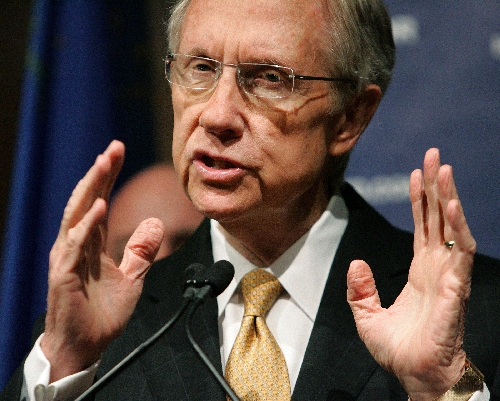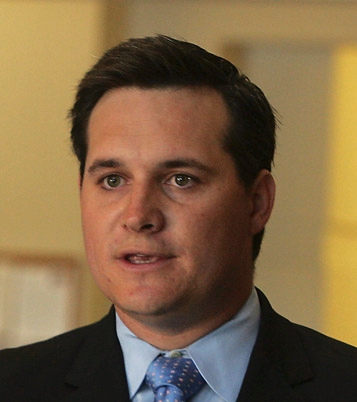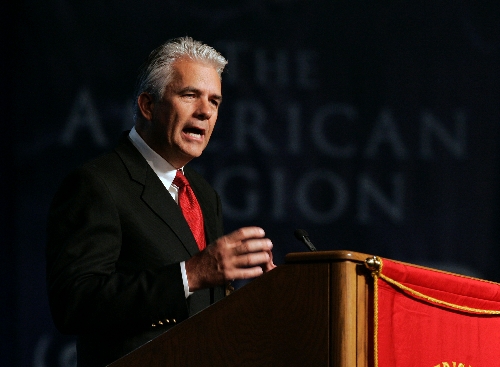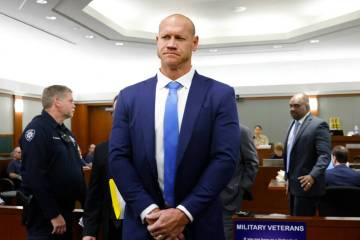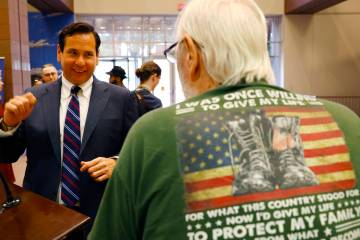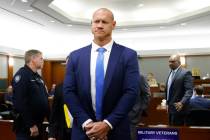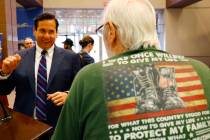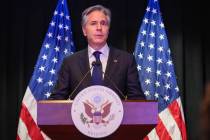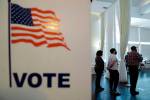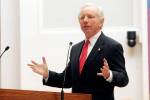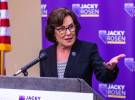Book will highlight Reid-Angle race
This year's U.S. Senate race is over, but its chapter in Nevada history is still being written.
Just ask Dave Damore, a political science professor at the University of Nevada, Las Vegas.
Damore is writing a book chapter about the contest between Sen. Harry Reid, the Democratic leader who won re-election, and his Republican opponent, Sharron Angle.
It's for the upcoming "Cases in Congressional Campaigns," a book the Routledge publishing house has put out for the past couple of election cycles, highlighting the most interesting races.
What's the Nevada tale in a nutshell?
"It's all about party building for Reid and getting good candidates not to run against him," Damore said, noting Democrats registered 100,000 new voters in 2008. "It's about setting up the entire structure to make it most likely for him to win."
The powerful incumbent Reid and his allies discouraged several potential GOP opponents from entering the race. And then he helped take out Angle's stronger GOP primary foes, including Sue Lowden, former head of the Nevada Republican Party.
Damore will provide the details in his chapter that's due in January.
For those who can't wait for the book, Reid pollster Mark Mellman and his media adviser, Jim Margolis, recently wrote a memo that lays out the Reid campaign's winning strategy. They posted it at www.pollingreport.com.
The upshot of their 3,345-word memo: Reid knew he was facing tough re-election "headwinds" because of Nevada's worst-in-the-nation economy, and so his campaign focused on "disqualifying" his opponent by making her unelectable in voters' eyes. That was the negative part of the campaign, portraying Angle as "extreme" and even "dangerous" for wanting to eliminate agencies such as the Education Department and privatize Social Security and Medicare.
Using focus groups to test messages, the Reid campaign discovered its TV ads had to show -- not just tell -- why the Tea Party-backed Angle was not a good choice over Reid.
"Voters doubted anybody could be quite as crazy as we said Angle was," the memo said. "Spots that included Angle speaking in her own words proved most effective because they overcame these doubts."
The positive side of Reid's campaign focused on targeting his Democratic base -- particularly Hispanics -- as well as independent voters and moderate Republicans and making sure they understood how much clout the Senate majority leader had. His operatives then worked on the ground to make sure those potential backers got to the polls, even those who don't usually vote.
While public polls focused on measuring Reid and Angle support among self-identified "likely voters," Reid's pollsters also were measuring his support among "inconsistent" voters and Spanish-speaking Nevadans who often get overlooked.
"Consistent voters were less likely to support Reid than those with inconsistent voting records," the memo said. "Therefore insuring that our supporters actually cast ballots was vitally important, and Senator Reid's campaign responded to the challenge by building the most effective turnout operation ever constructed for a Senate contest."
In the end, Reid won 50 percent of the vote, nearly 6 percentage points more than Angle.
Although Reid's campaign was one of the best in the country, Angle's campaign was one of the worst, according to most observers, with her local advisers and national operatives tussling over strategy.
Angle recently acknowledged Reid had beaten her down following her June 8 GOP primary victory when she initially had no money to battle back. As a result, once she got money, her ads and her campaign were just as negative as Reid's.
"I would have liked to have run a more positive campaign and been able to put out a more positive message," Angle said in a rare post-election interview with the Lahontan Valley News. "But it was not possible. He had battered me with his campaign ads and left me with no room."
A former Reno assemblywoman, Angle said she wants to run for office again, perhaps for a U.S. Senate or House seat, or the state Senate, meaning she's not ready to close the chapter on her political career just yet.
---- Laura Myers
ensign defense fund
Sen. John Ensign formed a legal fund in May to help pay lawyers defending him in ongoing ethics and criminal investigations. In August he sent a letter to his supporters asking them to help fill the account.
But after raising a little more than $64,000 through the end of September, Ensign says he does not plan to ask for more.
"You know what, I started and it was just too painful to ask people for money for that," the Nevada Republican told KXNT-AM, 840 Newsradio host Alan Stock last Wednesday. "I just quit."
In a Senate filing last month, Ensign reported he had raised $64,254. He told Stock the fund contains "a little over $100,000," counting recent contributions.
Even at that, Ensign had spent $22,000 on overhead, including $12,000 to two marketing firms that he said prepared the August solicitation, and $10,000 to a Washington law firm.
Ensign's fundraising produced only a small amount compared to legal bills that he told Stock could be "well over a million dollars."
Ensign has drawn down his campaign bank account by more than $500,000 to pay lawyers for himself and staff members. Additionally, he said he has paid out "hundreds of thousands of my own money" to address allegations that he broke a federal lobbying law and Senate ethics rules in attempting to massage the aftermath of an extramarital affair with the wife of a top aide.
-- Steve Tetreault
miller backers look ahead
Secretary of State Ross Miller, a Democrat, said last week that some voters have asked him to run for governor in 2014, which could put him in a face-to-face clash with Republican Gov. Brian Sandoval.
"That is not a decision that can be made today," Miller said. "I haven't even been sworn in yet to my second term" as secretary of state.
Gov.-elect Sandoval already has asked Miller to slash the secretary of state's office by more than the 10 percent sought by outgoing Gov. Jim Gibbons. Miller refused to say what percentage of cuts Sandoval wants.
Miller added he is not interested in running for Congress and intends to serve out the entire four years of his term. He did not rule out, however, the possibility of someday running for the U.S. Senate.
Miller, 34, was raised on politics. Bob Miller, his father, was governor for a record 10 years, and Ross grew up in the Governor's Mansion.
-- Ed Vogel
Contact Laura Myers at lmyers
@reviewjournal.com or 702-387-2919.
Contact Stephens Washington Bureau Chief Steve Tetreault at stetreault
@stephensmedia.com or 202-783-1760. Contact Ed Vogel at evogel
@reviewjournal.com or 775-687-3901.
POLITICAL EYE BLOG



